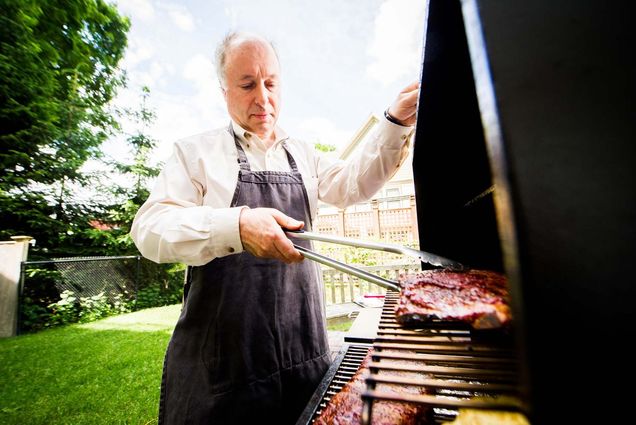Can the Science of Safe Cooking Solve Our Looming PPE Shortage?
ENG prof Greg Blonder’s decontamination method spins off his interest in grilling

By Rich Barlow
What does barbecue have to do with the looming shortage of personal protective equipment (PPE) as COVID-19 spikes again?
Quite possibly, the science of safe grilling could make safe cleaning and reuse of PPE the key to arresting dwindling supplies. And not just PPE, but things like library books and hospital mattresses as well.
So thinks Greg Blonder, a College of Engineering professor of product design and engineering, who tackled the PPE question using his expertise in cooking and the science of food safety. He and collaborator Jesse Kwiek of Ohio State University are testing a cheap, low-tech process for decontaminating not just the N95 masks used by frontline health providers, but gowns and booties as well.
“When you cook food, you have to cook it hot enough and long enough to be safely consumed,” says Blonder. “COVID is not the same as your typical food pathogens, but it’s related to some of the families. When I ran the numbers, it looked like maybe 24 hours, or 10 hours, at 120 degrees would be enough to decontaminate masks, PPE.”
It calls for placing PPE in a room or cabinet that’s heated to between 115 and 120 degrees Fahrenheit for 12 hours. Blonder believes WASP-D will decontaminate not just PPE, but other items, such as hospital mattresses coronavirus patients bed down on and library books that circulate among potentially contagious patrons.